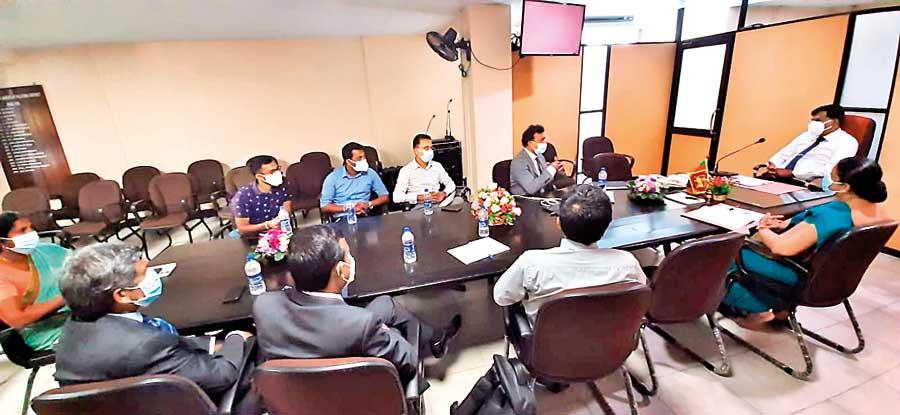Reply To:
Name - Reply Comment
To pioneer advanced digital solutions for building climate resilience and community-based early warnings

Project Briefing held at the Kalutara District Secretariat on the 24th of January 2022
The National Building Research Organisation (NBRO) has recently been successful in securing an innovation grant (30 million rupees) by working with the Kalutara District Secretariat and the University of Salford in the UK, to trial a set of advanced digital solutions that can help local agencies and communities to work together to build their local resilience against climate-induced disasters such as landslides and floods.
The grant is being offered as a part of the Programme for Asia Resilience to Climate Change (PARCC), run by the World Bank and funded by the UK’s Foreign, Commonwealth and Development Office (FCDO), and administered by the Asian Disaster Preparedness Centre (ADPC). This innovation project, won by NBRO, is one of the 16 winning projects, selcted out of 236 competitive proposals submitted to the climate change innovation challenge led by the Asian Disaster Preparedness Centre.
The MOBILISE platform will allow government agencies to consider possible future hazards due to climate change and gain an in-depth understanding of the magnitude of the potentially affected population, impacted roads and critical infrastructure, and damage and losses in many disaster-prone areas of the country.
The project aims to trial a range of digital solutions, developed by the THINKlab at the University of Salford in the UK and Tecxal Systems Ltd in Sri Lanka, to overcome limitations in current approaches to preparing for climate-induced disasters. One of the key challenges faced by many countries, such as Sri Lanka, is the lack of an intelligence-driven approach for addressing local disaster risk reduction activities.
"At present, important climate and disaster risk data are scattered across many Government Agencies. As a result, it is difficult for Government agencies, both at the national and local level, to compile relevant intelligence, necessary for building community resilience against climate change and issuing effective early warnings"
At present, important climate and disaster risk data are scattered across many Government Agencies. As a result, it is difficult for Government agencies, both at the national and local level, to compile relevant intelligence, necessary for building community resilience against climate change and issuing effective early warnings.
This digital innovation project aims to establish a shared risk information environment and a data-driven decision support system for the local agencies in Kalutara to implement a participatory approach for identifying local risks and agreeing on adaptation and risk mitigation actions.
Furthermore, the digital solutions developed in this project will trial a community-based early warning system where communities themselves can offer important intelligence to relevant officials through crowdsourcing techniques and receive timely alerts and warnings in advance of possible disaster risks, thus saving lives. The project will also explore smart city solutions for sending early warning messages to communities that are out of mobile signal coverage.
The Climate Change Secretariat, together with the Department of Meteorology, has predicted possible impacts of climate change that may lead to extreme weather conditions such as heavy rains. Hence, landslides may become more frequent. Therefore, local agencies must establish a clear understanding of the current and future local risks due to climate change in developing their local land use plans and economic development activities.